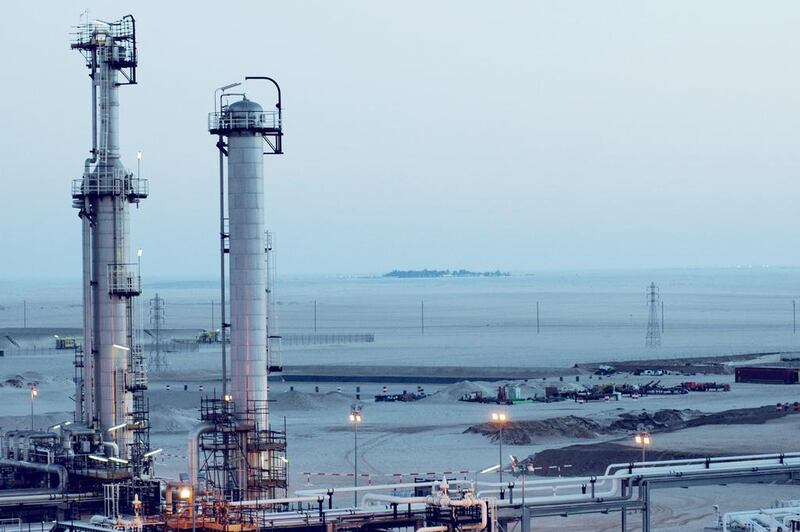Wintershall, the German oil services company that is helping to develop Abu Dhabi’s gas resources, said yesterday that its sales and earnings fell last year because of lower commodity prices and adverse business developments in Russia.
The company, which is part of the German chemicals conglomerate BASF, said sales last year fell by €2 billion (Dh8.3bn), or about 13 per cent, to €13bn, mainly because of reduced revenue from its Russian gas storage and trading deals.
Profit before interest, tax and special items was down about 24 per cent at €1.3bn.
Wintershall said in its annual earnings statement that it also took a charge against earnings of €636 million to reflect the “impairment” of its oil and gas assets, reflecting their lower earning capability in an environment of prolonged lower hydrocarbon prices.
Wintershall’s executive chairman Mario Mehren said that the coming year would probably be worse than the previous.
“Gas prices are likely to fall well below the level in 2015 on average,” he said. “We expect our production to be increased but a significant fall in sales and [earnings before interest tax and] special items compared to 2015.”
Continued lower Russian earnings and commodity prices are the main factors.
The company said the Middle East “is playing an increasingly important role” in its future, without quantifying it.
Wintershall is helping to develop the Shuwaihat sour gasfield, which lies in Abu Dhabi’s Western Region, about 25 kilometres west of the city of Ruwais. It is still at the appraisal stage, but Wintershall said: “A successful evaluation and subsequent production could make Shuwaihat one of the most important natural gas and condensate fields in the Western Region of Abu Dhabi.”
Demand for natural gas in the UAE has been rising rapidly – about 6 per cent a year – and the country has had to import an increasing amount of gas since 2008.
The state oil company, Adnoc, has been trying for years to develop its sour gas reserves, which are difficult and expensive to tap because of the high hydrogen sulphide content.
Earlier this year, Royal Dutch Shell pulled out of the US$10 billion Bab sour gas project, citing costs and operational difficulties.
However, the Al Hosn sour gas project, developed with Occidental Petroleum, came on-stream last year, supplying 500 million square feet a day into the UAE system. Oxy’s outgoing chief executive, Stephen Chazen, also has said he expects the company’s 40 per cent stake in Al Hosn to generate between $300m and $600m of “free cash flow” a year for the company.
Winterhsall said it will have data from its first onshore Shuwaihat well at the end of this month and plans to drill in the shallow offshore later this year.
amcauley@thenational.ae
Follow The National's Business section on Twitter





